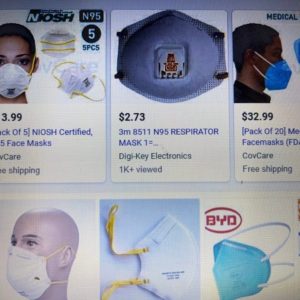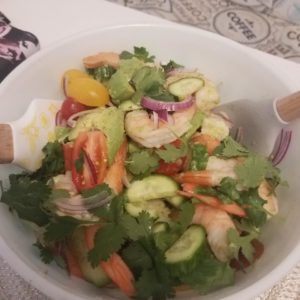Coconut oil: “poison”?

Coconut oil, touted to be a healthy oil and a “superfood” is a “pure poison” according to some Dutch researchers, claiming there are no studies to prove it does your body better than other edible oils.
We have been warning the public about the danger of coconut oil since the early 80s as false claims flooded the market, together with various forms of coconut products, including virgin coconut oil.
The American Heart Association published a report a couple of years ago warning about the dangers of eating too many unhealthy, saturated fats, was a big blow against coconut oil, which is listed and characterized as one of the “unhealthy fats,” which raises LDL (bad) cholesterol levels “more than any other liquid fat.”
The report further stated: “From a structural perspective, coconut oil is about 90 percent saturated fat (which is why it stays solid at room temperature). According to Harvard’s Walter Willett, that’s a far higher percentage than butter, at 64 percent, as well as beef fat and lard, both at 40 percent.” Olive and avocado fruits and oils are healthy food items.
Coconut oil is known to be good for the hair, and perhaps for the skin, but falsely marketed as a “superfood.”
As always, caveat emptor!
Fecal Transplant
One of the most recent popular topics in medical science is the microbiome, especially of the gastrointestinal tract. Microbiome, as the term suggests, concerns the microscopic life environment in and on our body. The gut microbiome (microbes in our intestinal tract) influences our metabolism, immunity, and mediator of resistance to some infections. There are good and bad microbes (trillions) on our skin and in our body, like the gut. The balance of their coexistence with us and our body determines our health and wellbeing. Our body needs both types of microbes, in harmony and in balance, for good health.
It has been reported that the “distinct and essential organ within the human body, the gut microbiome contains an estimated 500-1000 species and 100 trillion organisms, encoding 100-fold more unique genes than our own genome.”
Antibiotic-associated diarrhea, for one, is caused by a disturbance in the balance of the microbiome milieu when the drug kills both types (good and bad) of bacteria in the body. The condition leads to Clostridium difficile infection, which has doubled in incidence in the USA alone from 1996 to 2003, and in 2010, estimated to be half a million a year, resulting in 20,000 deaths a year.
To reestablish the original balance of gut microbiome, Fecal Microbiome Transplantation (screened donor human stools given to the patient) has been found effective in the management of C. difficile infection, which has saved countless lives. The donor feces, blenderized and filtered, is introduced by enema or colonoscopy into the patient’s colon, aimed at providing the gut a normal flora of stool bacteria. FMT has been found to be very effective.
Stools, after all, are not a total waste.
NIOSH-N95 Mask

The government is providing free masks for all soon, a mitigating PPE that should have been distributed two years ago, followed by a federal mandate for vaccination for all when the vaccine first came out on December 11, 2020. Those two strategies would have ended COVID-19 in the USA before 2022. Mutations gave us Delta, Omicron, Deltacron and now a subvariant of Omicron, BA.2 virus, an even more rapidly transmissible strain (first found in Denmark late December 2021 and now 30,000 new cases per day, the 45-percent predominant strain in Denmark), nicknamed “Stealth Omicron.”
With the massive surges of these new variants, we can expect the virus to be all around us, on us (especially among the unvaccinated), flying in the air, and dropping on the floor. Talking, breathing, sneezing, and coughing (without a mask) spews out the virus and transmit the virus to people around. Sneezing and coughing shoot the virus into a trajectory of 16.5 meters per second. Certainly beyond 6 feet. The more reason to mask-up, perhaps doubly, or with a gaiter or a face shield on top of the mask. One can never be too careful in the presence of this stealth enemy. Even to a silly degree of protection.
The size of COVID-19 (SARS-CoV2) virus is 0.1-0,5 micron, 600 times smaller than a grain of salt, 150 times smaller than pollen, 25 times smaller than dust, 20 times smaller than bacteria. The mask we need should have pores smaller than 0.1 micron to really prevent the virus from going through our mask and entering our nose and mouth. Unfortunately, such a mask does not exist (yet).
Cloth masks, using 100 percent cotton, found to be the best material among dozens of common fabrics, still has about 100 micron-size pores, which would allow (accommodate) 1000 viruses in one pore alone, making it a poor filter for COVID-19 viruses.
The NIOSH-approved N95 mask filters up to 0.3 micron. During a high velocity cough, even N95 masks filters only 53 percent of small particles. But reducing the viral load is always beneficial. Even 100 percent cotton, when made into a 3- to 5-layer mask, is still helpful, better than no mask at all.
NIOSH-N95 mask is still the best (when worn properly covering the nose also), compared to all the other masks, even expensive high-end and designer masks. The N95 could be doubled or reinforced with a gaiter or a face shield to maximize protection. Frequent handwashing, social distancing, avoiding crowds, and staying home except for essential travel, are still the best weapon we have against the virus, which has so far killed more 5.6 million worldwide, greater than 890,000 in the USA, and almost 53.6 thousand in the Philippines.
Cancer and diet

Diets high in red meat, processed foods, and low in vegetables, fruits, and nuts are well-known causes of cancers in general. High saturated animal fats and burnt meat (barbeques) are believed to increase the risk of pancreatic and colon cancers. Recent studies show the impact of diet on cervical cancer. Eating a variety of natural fresh whole food items (unprocessed, no preservatives, no additives), minimum red meats (twice or once a week), a lot of green leafy vegetables, other colored veggies, nuts, and fruits, lowers the risk for cervical malignancy and other forms of cancers. In the Philippines, about 5,000 cases of cervical cancer (caused by Human Papilloma Virus) are detected each year, making it the second most common cancer in women. The vaccine, Gardasil, which prevents cervical cancer almost 100 percent, when given to young boys and girls in grammar school before they become sexually active, is a miracle drug all parents should welcome.




Leave a Reply